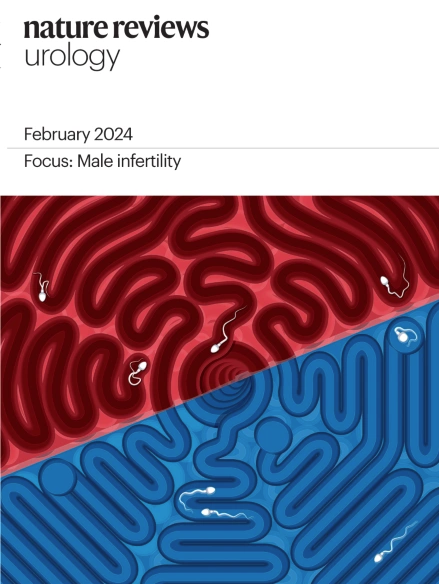Racial disparities in prostate cancer in the UK and the USA: similarities, differences and steps forwards
IF 12.1
1区 医学
Q1 UROLOGY & NEPHROLOGY
引用次数: 0
Abstract
In the USA, Black men are approximately twice as likely to be diagnosed with and to die of prostate cancer than white men. In the UK, despite Black men having vastly different ancestral contexts and health-care systems from Black men in the USA, the lifetime risk of being diagnosed with prostate cancer is two-to-three times higher among Black British men than among white British men and Black British men are twice as likely to die of prostate cancer as white British men. Examination of racial disparities in prostate cancer in the USA and UK highlights systemic, socio-economic and sociocultural factors that might contribute to these differences. Variation by ancestry could affect incidence and tumour genomics. Disparities in incidence might also be affected by screening guidelines and access to and uptake of screening. Disparities in treatment access, continuity of care and outcomes could contribute to survival differences. In both localized and metastatic settings, equal access could diminish the observed disparities in both the USA and the UK. An understanding of behavioural medicine, especially an appreciation of cultural beliefs about illness and treatment, could inform and improve the ways in which health systems can engage with and deliver care to patients in minoritized groups affected by prostate cancer. Methods of promoting equity include targeting systemic barriers including systemic racism, proportional recruitment of patients into clinical trials, diversifying the health-care workforce and facilitating care informed by cultural humility. Actively engaging patients and communities in research and intervention might enable the translation of research into increasingly equitable care for patients with prostate cancer in the UK, the USA and globally. Examination of racial disparities in prostate cancer in the USA and UK highlights systemic, socio-economic and sociocultural factors that might contribute to these differences. Understanding behavioural medicine might inform and improve the way in which the health-care system can engage with patients in minorities who are affected by this disease.英国和美国在前列腺癌方面的种族差异:相似之处、差异和前进步骤
在美国,黑人男性被诊断出前列腺癌和死于前列腺癌的几率大约是白人男性的两倍。在英国,尽管黑人男性的祖先背景和医疗保健系统与美国黑人男性大相径庭,但英国黑人男性终生被诊断出前列腺癌的风险是英国白人男性的两到三倍,英国黑人男性死于前列腺癌的几率是英国白人男性的两倍。对美国和英国在前列腺癌方面的种族差异进行的研究强调了可能造成这些差异的系统、社会经济和社会文化因素。血统差异可能会影响发病率和肿瘤基因组学。发病率的差异还可能受到筛查指南、筛查机会和筛查率的影响。治疗机会、治疗的持续性和治疗结果方面的差异可能会导致生存率的差异。在局部和转移性环境中,平等的治疗机会可以缩小在美国和英国观察到的差异。对行为医学的理解,尤其是对疾病和治疗的文化信仰的理解,可以为医疗系统提供信息,并改善医疗系统与受前列腺癌影响的少数群体患者接触和为其提供医疗服务的方式。促进公平的方法包括针对系统性障碍(包括系统性种族主义)、按比例招募患者参与临床试验、实现医疗队伍的多元化以及促进以文化谦逊为基础的医疗服务。让患者和社区积极参与研究和干预可能会使研究成果转化为对英国、美国和全球前列腺癌患者日益公平的治疗。
本文章由计算机程序翻译,如有差异,请以英文原文为准。
求助全文
约1分钟内获得全文
求助全文
来源期刊

Nature Reviews Urology
医学-泌尿学与肾脏学
CiteScore
12.50
自引率
2.60%
发文量
123
审稿时长
6-12 weeks
期刊介绍:
Nature Reviews Urology is part of the Nature Reviews portfolio of journals.Nature Reviews' basic, translational and clinical content is written by internationally renowned basic and clinical academics and researchers. This journal targeted readers in the biological and medical sciences, from the postgraduate level upwards, aiming to be accessible to professionals in any biological or medical discipline.
The journal features authoritative In-depth Reviews providing up-to-date information on topics within a field's history and development. Perspectives, News & Views articles, and the Research Highlights section offer topical discussions and opinions, filtering primary research from various medical journals.
Covering a wide range of subjects, including andrology, urologic oncology, and imaging, Nature Reviews provides valuable insights for practitioners, researchers, and academics within urology and related fields.
 求助内容:
求助内容: 应助结果提醒方式:
应助结果提醒方式:


